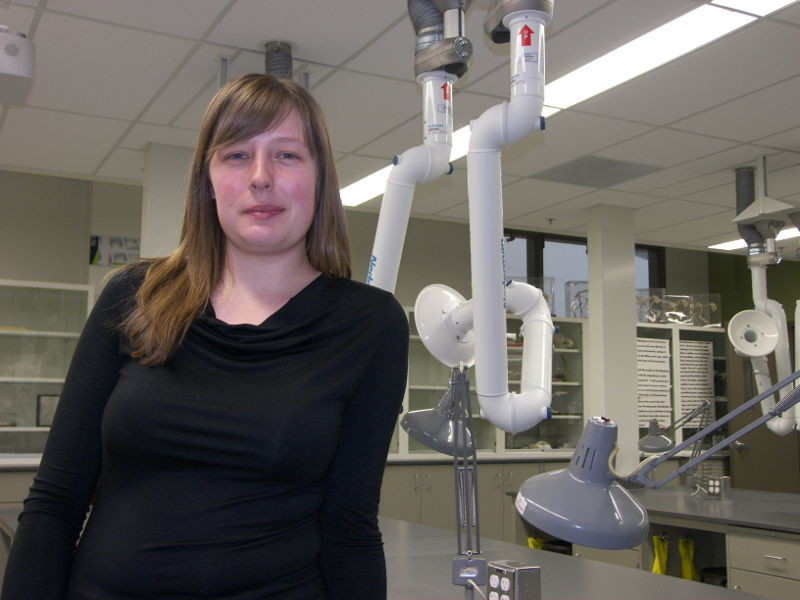New union prepares for first collective bargaining agreement
Executives say respect and fair wages are among priorities
The union for the University of Winnipeg’s teaching assistants, lab demonstrators, markers and tutors is preparing for its first collective bargaining agreement.
Nastashya Wall, president of PSAC Local 55600, said most universities, including the University of Manitoba, have unions for these types of jobs. As the University of Winnipeg continues to expand, it was a logical step to form a union.
“There’s not a lot of standardization of what you can expect from your employer,” said Wall, who works as a lab demonstrator in the biology department. “If something goes awry, even if it is an honest mistake, there isn’t a way for you to deal with that.”
The union represents approximately 400 employees working in every department of the university, Wall said. English Language Program instructors are also included in the union, but under a bargaining unit separate from her own, she added.
Wall said there was a strong pull for a union to be formed, with 89 per cent of the bargaining unit voting in favour of unionization.
Having an organized bargaining unit will also make it easier for professors to communicate with union members, and ensure concerns of both students and professors are being addressed, she said.
Greg Furmaniuk, a TA in the politics department who serves on the union as treasurer and bargaining team member, said the union’s main concerns include fair wages, fair job postings and ensuring its members are respected.
“Say something wrong happens, and the professor that you’re working for is also your thesis professor - it’s important to have a system in place to deal with that,” Furmaniuk said.
Furmaniuk said another obstacle the union faces is reaching its members. Before the executive can move forward with a collective bargaining agreement, it needs to hear from members to know which concerns need to be met.
Ian Bawa, a TA in the film department, was surprised to hear there was a union specifically for TAs. Bawa received an email about the union, but the information in the email was unclear, he said.
“I used to work in career and counseling and I was part of the union then and I was shown a video, I got the whole spiel. This time I didn’t. It’s not very well known,” said Bawa.
Still, Bawa believes the union isn’t unnecessary.
“It doesn’t really do much, I don’t think it affects us as much as one would hope,” he said. “I can’t imagine having a problem which I couldn’t fix myself.”
Brent Gali, who has been a lab demonstrator for two years, said that while the union may help ensure better wages, rate of pay is not a high priority for him.
“I’m happy doing it just because it’s a good experience,” he said. “In the biology department it hasn’t been too much of an issue.”
Former history TA Lukas Thiessen said having an organized union was a good idea.
“I like the idea of a group of people coming together to be unified about something,” Thiessen said. “In some departments, it’s sort of assumed that you’re going to be doing more work than you’ll be paid for. I think people find that frustrating.”
Published in Volume 66, Number 15 of The Uniter (January 11, 2012)








